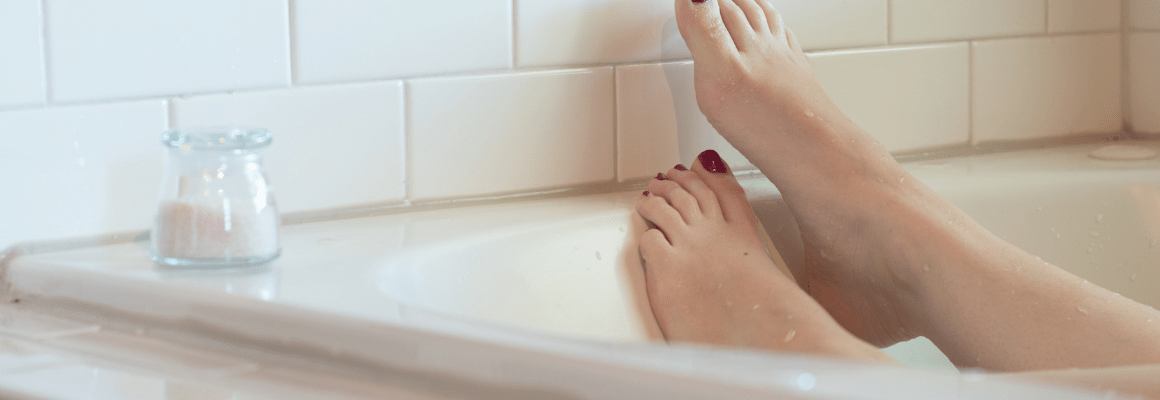Eczema can usually be extremely uncomfortable and irritating, but did you know that it's actually important to exfoliate eczema prone skin?
Discover why exfoliation is important and how you can exfoliate gently without further irritating skin.
Why Should You Exfoliate Eczema?
Prior to discussing how to exfoliate eczema, we should discuss why it might be important.
Exfoliation for eczema can actually be extremely beneficial, as it helps remove dry and dead skin that can actually exacerbate flareups. Exfoliating can also help natural eczema treatments penetrate the skin to deliver faster soothing effects.
How to Exfoliate Eczema
It's important to remember that eczema prone skin is very fragile, so you'll want to avoid over exfoliating.
To begin, choose a gentle natural eczema soap like this Emily Skin Soothers Liquid Soap.. Not only is this soap gentle on irritated skin, but its fatty olive oil, avocado oil and shea butter base offers moisturizing properties that are needed when bathing.
If you prefer using a hard soap, you can also check out this Emily Skin Soothers Soap for Eczema that contains the same ingredients.
Next, you'll want to opt for a gentle exfoliating tool like this one to help lift dead skin cells which can cause future breakouts. A silicone brush like this one can also be a great tool for skin that's a little more sensitive and prone to irritation.
Another wonderful tool to exfoliate eczema is a natural scrub. This DIY Sugar Scrub for Dry Eczema from the Flawless Program combines coconut oil, sugar and baking soda – making it the perfect treatment for flaky, crusty eczema.
Because a natural scrub will help lift dead skin cells, you won't need to use an exfoliation tool.
How to NOT Exfoliate Eczema
Although exfoliating eczema can be extremely beneficial, there are some things you'll want to avoid in order to prevent further irritation and inflammation.
1) Don't exfoliate everyday– over exfoliation can cause further inflammation and irritation. Keep exfoliation to a maximum of once every one or two weeks.
2) Don't scrub– even if you're using an exfoliating tool. Instead press down gently and work the soap or scrub in by performing gentle circles or by sweeping off dead skin.
Lastly, NEVER exfoliate on weeping or oozing eczema. These exfoliation techniques should only be used on dry and itchy eczema.
If you're looking for natural remedies for weeping eczema, check out our blog post: Weeping Eczema - 5 Natural Ways to Heal.
Post-Exfoliation
After exfoliating, you'll want to restore skin's natural moisture with an emollient like this Organic Manuka Skin Soothing Cream or a beef tallow cream. Not only is this cream nourishing and soothing, but manuka oil and manuka honey offer anti-inflammatory and anti-bacterial properties.
This Oatmeal Bath for Eczema can also be a great soap substitute in the bath. Simply sprinkle in water and soothe irritated, inflamed skin with its colloidal oatmeal, baking soda and coconut milk powder ingredients. It also contains dead sea salts, which are naturally exfoliating as well!
Lastly, for advanced relief from itchy skin, check out our array of Remedywear™ dry wrap garments. These pieces are all made with TENCEL and zinc-embedded fibers and help keep skin dry and well-protected.
Some of our favorites are:
Eczema Bandages/Sleeves for Babies to Adults
Resources
https://www.aad.org/media/news-releases/evaluate-b...



